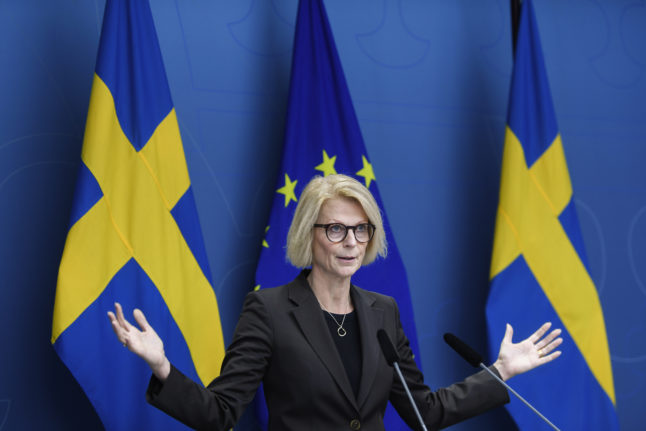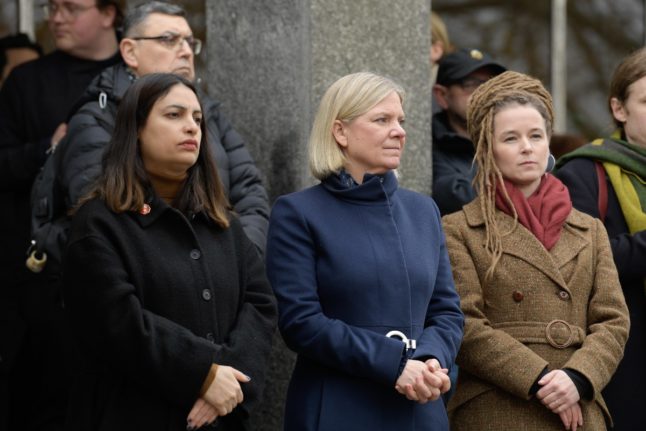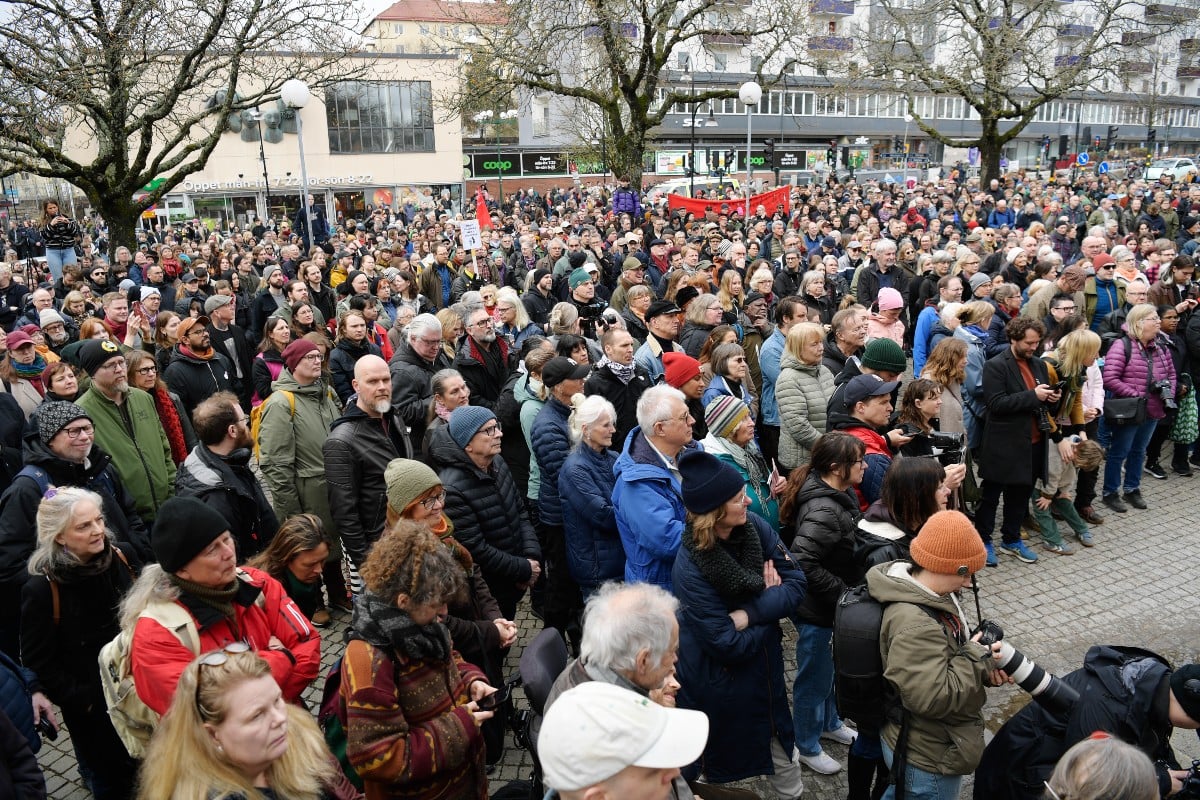Income tax cuts and lower taxes on pensions
Has it been implemented? Kind of.
During the election campaign, the Moderates promised income tax cuts and reduced taxes on pensions to the tune of 30 billion kronor. This hasn’t made it into 2023’s budget, other than the fact that income taxes for those over 65 who continue to work past retirement age will be cut, starting next year.
This tax cut for pensioners will affect around 400,000 people, giving a tax break of around 1,900 kronor per year for most, with a max cap of 6,000 kronor per year. It will cost the government 770 million kronor to implement.
Finance minister Elisabeth Svantesson was unable to say when income tax cuts would be implemented for other groups.
“We’ll have to get back to you on that, it depends on the financial situation, but the mandate period is long,” she told TT newswire.
There will be no changes to taxes on pensions.
Tax cuts on investment savings accounts
Has it been implemented? No.
Another Moderate Party election promise – which made it into the government’s coalition agreement with the Sweden Democrats – was to cut taxes on investment saving accounts (ISKs), so that savings of up to 300,000 kronor would not be taxed. This has not made it into this year’s budget.
“It’s important to be restrained in a very difficult situation so we don’t increase inflation,” she told TT newswire.
The budget states that “the government aims to propose lowered taxes on savings by making a basic level of 300,000 kronor on investment savings accounts tax-free during this mandate period”, which suggests that the policy hasn’t completely been scrapped, but will not be implemented in 2023.
According to finance magazine Privata Affärer, those with their savings in investment savings accounts can instead expect “sky-high taxes” on their ISK accounts next year, due to increased interest rates.
Their calculations suggest that those with savings of 300,000 kronor could expect to pay 2.5 times as much tax on their savings next year compared with this year, the highest level of taxes on ISK accounts since their introduction in 2012.
Lowered fuel prices
Has it been implemented? Kind of.
During the election campaign, the Moderates, Christian Democrats and Sweden Democrats promised to lower diesel and petrol prices by between 5 and 9 kronor per litre through lower taxes, lower VAT and lowering the reduction obligation to mix expensive biofuels with fossil fuels to make them more environmentally friendly.
Fuel prices will be lowered at the pump, but only by 14 öre for petrol and 41 öre for diesel.
“I think it’s well-balanced,” Svantesson said. “We’re doing what we promised. The biggest difference for drivers will come in January 1st, 2024, when we lower the reduction obligation to the EU’s minimum level.”
This will cost the government 6.7 billion kronor in 2023, going up to 6.9 billion kronor per year in 2024 and 2025.
Pause on mortgage repayment requirements
Has it been implemented? No.
The governing Moderates and Christian Democrats, as well the Sweden Democrats, promised to pause current mortgage repayment requirements (amorteringskravet) prior to the election, proposing a similar system to that which was implemented during the pandemic when borrowers were only required to make interest payments rather than actively paying off their mortgages.
This is not included in the budget for 2023, as it is now considered to be contrary to the Riksbank’s (Central Bank’s) measures to combat inflation.
High-cost protection for energy prices
Has it been implemented? Kind of.
The Moderates promised to introduce a temporary high-cost protection scheme for winter 2022/23, which would consist of the government subsidising “a majority of the excess costs” if “the monthly price exceeds a certain level”, which would be determined by the market situation each month. They also stated that this scheme would be implemented by November 1st 2022.
This has somewhat been implemented, but not via the budget. Instead, the government has proposed an alternative energy subsidy system, which will comprise a one-off payment based on last year’s usage to users which have an energy agreement (nätavtal) on a certain date – most likely in November or December this year.




 Please whitelist us to continue reading.
Please whitelist us to continue reading.
Member comments